Duterte's visit clearly revealed Japan's strategic calculations
Updated: 2016-10-31 08:16
By Cai Hong(China Daily)
|
||||||||
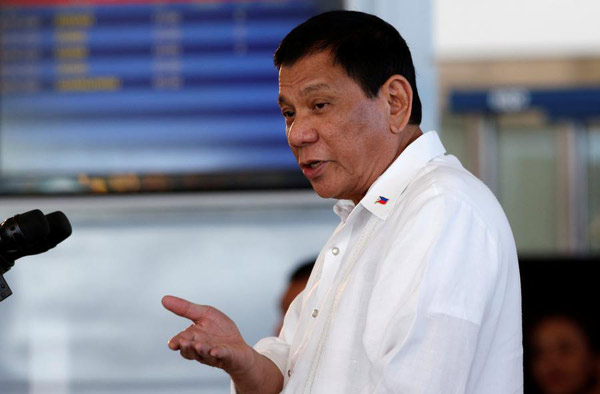 |
|
President Rodrigo Duterte speaks during a news conference before his departure for Japan, at the Ninoy Aquino International airport in Paranaque, Metro Manila in the Philippines, October 25, 2016. [Photo/Agencies] |
Japan's media have made no secret of their disappointment in Philippine President Rodrigo Duterte moving closer to China. Japan has been trying to draw Southeast Asian nations-the Philippines included-to its side to put pressure on, if not confront, China.
The Asahi Shimbun said the Japanese and the US governments have been enhancing their relations with the Philippines as part of their efforts to counter China's "aggressive maritime expansion".
The Mainichi Shimbun called close cooperation between Japan, the United States and the Philippines the "core" of Japan's security policy in the South China Sea.
When Duterte visited China, he made no mention of the award issued by the arbitral tribunal in The Hague July, they ask the Philippines and China to "observe rule of law".
If the two countries undercut the principle of the rule of law to promote their parochial interests, their behavior will raise serious concerns within Asia, the Asahi Shimbun said.
The newspaper added that the South China Sea, which contains vital trade routes, must be open to free navigation by any country.
The South China Sea is a critical commercial gateway for a significant portion of the world's merchant shipping. About $5 trillion worth of trade passes through it every year.
In his book Asia's Cauldron: The South China Sea and the End of a Stable Pacific, Robert D. Kaplan, former member of the Pentagon's Defense Policy Board, said more than half of the world's annual merchant fleet tonnage passes through this choke point, and a third of all maritime traffic worldwide. To be more exact, roughly two-thirds of Republic of Korea's energy supplies, nearly 60 percent of Japan's, and 80 percent of China's crude oil imports come through the South China Sea.
But have any Japanese oil takers been threatened in these waters?
In a lengthy article published on the ChinaUS Focus website on May 27, Ben Reynolds, a New York-based writer and foreign policy analyst, said the much-touted issue of "freedom of navigation" is not about trade at all. "Freedom of navigation" refers to the right to conduct military patrols within the South China Sea's disputed territorial waters. The freedom being asserted by US "freedom of navigation" operations is for US military vessels, not oil tankers.
Japan, which is a staunch US ally and hosts 50,000 American troops, performs to the US' baton, so it too is calling for "free navigation".
Japan took the South China Sea issue as the highest priority when Duterte visited Japan last week, according to the Asahi Shimbun. "Tokyo had hoped to convince him about the importance of working together with the United States to resolve the dispute."
Duterte, however, told Japan's business heavyweights in Tokyo on Wednesday that he wants to be friends to China. "I do not need the arms. I do not want missiles established in my country. I do not need to have the airports to host the bombers."
Philippine Foreign Minister Perfecto Yasay who accompanied Duterte said his country is trying to resolve its dispute with China in a peaceful manner.
But Japan does not want to put the issue to rest. Among other aid, Japan will offer Philippines two coast guard boats and T-90 military trainer aircraft to beef up the Southeast Asian nation's maritime security capability.
Japan's keen interest in the "freedom of navigation" smacks of strategic calculations.
The author is China Daily Tokyo bureau chief.
caihong@chinadaily.com.cn
- Duterte's remarks in Japan accord with his words in Beijing: Chinese FM
- Duterte's unorthodox style shows pragmatic diplomacy
- Duterte's visit has ushered in a new era
- Duterte is maximizing interests, analysts say
- Duterte likely to tread lightly on Japan trip
- US gets clarification on Duterte's 'separation' comment
- Duterte visit signals constructive road ahead
- Hefty award offered for deciphering oracle bone characters
- China Daily brings you 'sixth plenums' in past 35 years
- Party ramps up supervision
- 400,000 migrant workers flock to Xinjiang to harvest cotton
- China anticipates booming job market in 2016
- Online shopping platform selects cat as 'chief cute officer'
- Asia American leaders discuss civic engagement
- World's disabled get new champion
- Clinton, Michelle Obama make first joint campaign appearance
- Miss Philippines wins 2016 Miss International Beauty Pageant
- Trump's Hollywood Walk of Fame star destroyed
- Maduro activates Defense Council to seek solution to crisis
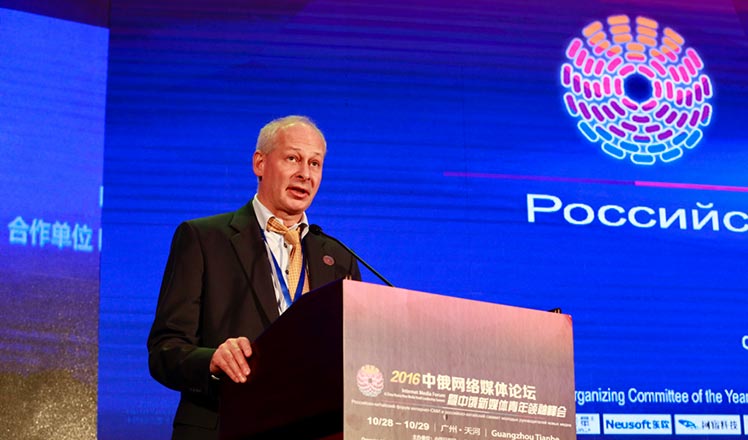
 China-Russia Internet Media Forum opens in Guangzhou
China-Russia Internet Media Forum opens in Guangzhou
 2016 Comedy Wildlife Photography Awards Finalists
2016 Comedy Wildlife Photography Awards Finalists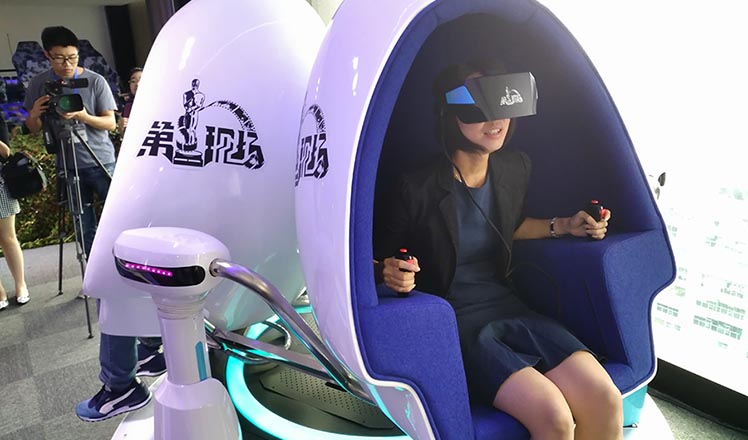
 NINED VR creates splash with virtual reality products
NINED VR creates splash with virtual reality products
 Splendid Sichuan captured in photos
Splendid Sichuan captured in photos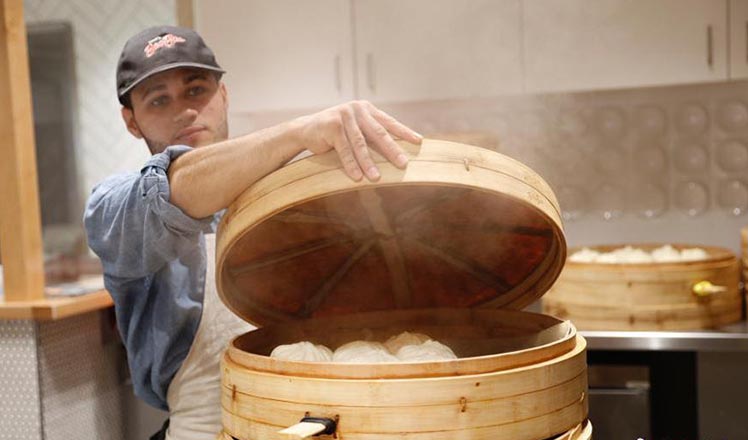
 Chinese baozi shop gains popularity in Harvard Square
Chinese baozi shop gains popularity in Harvard Square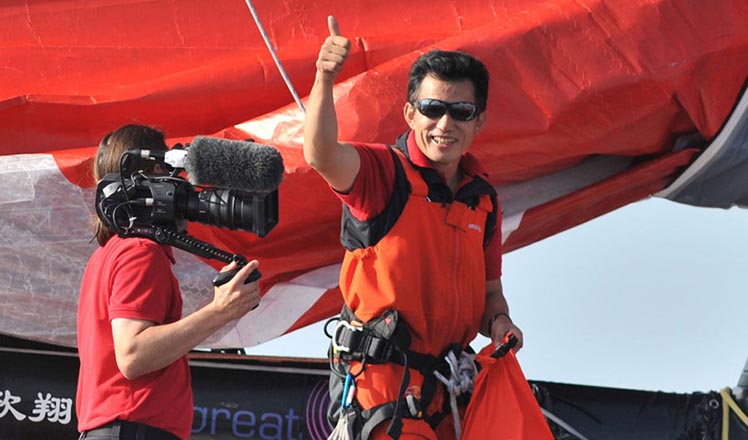
 Chinese mariner on record-breaking voyage goes missing
Chinese mariner on record-breaking voyage goes missing
 2045-square-meter photo mosaic breaks world record
2045-square-meter photo mosaic breaks world record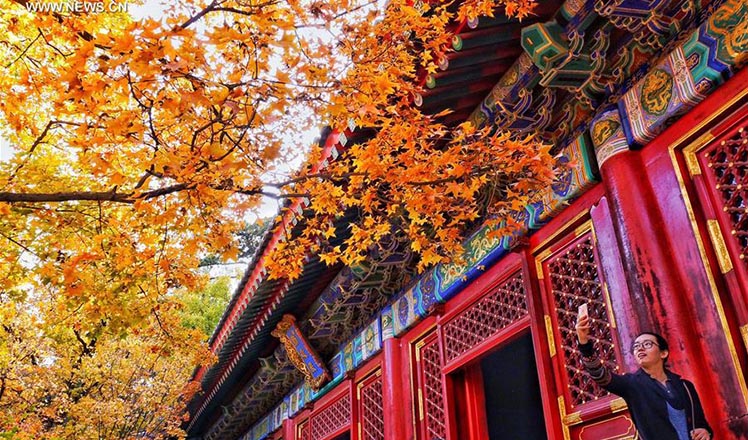
 Red leaves reveal beauty of autumn
Red leaves reveal beauty of autumn
Most Viewed
Editor's Picks

|

|

|

|

|

|
Today's Top News
'Zero Hunger Run' held in Rome
Trump outlines anti-terror plan, proposing extreme vetting for immigrants
Phelps puts spotlight on cupping
US launches airstrikes against IS targets in Libya's Sirte
Ministry slams US-Korean THAAD deployment
Two police officers shot at protest in Dallas
Abe's blame game reveals his policies failing to get results
Ending wildlife trafficking must be policy priority in Asia
US Weekly

|

|







